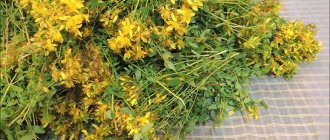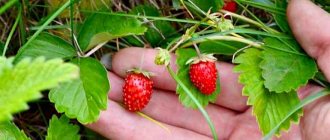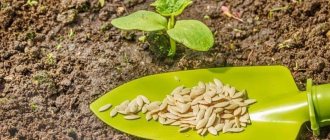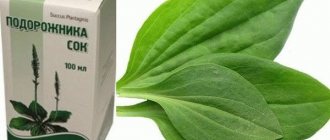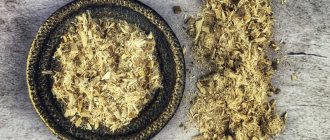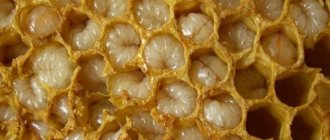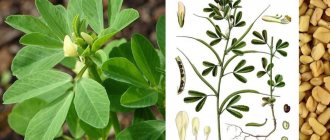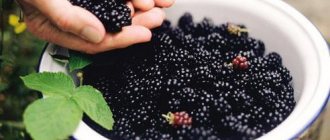The herb known since ancient times for its miraculous properties and healing qualities is called St. John's wort. The plant is used in folk medicine and is also used to prepare various medicines. Tea made from St. John's wort has an unusual taste, but it is very healthy. The perennial grass has bright yellow flowers and reaches a height of more than one meter. The most famous is the common variety of St. John's wort, which is collected in forests and fields. The main thing is to follow all the rules when harvesting and preparing raw materials, as well as when brewing the drink, so that it retains all the nutrients. In our article we will talk about the composition of the medicinal herb, the benefits of tea made from St. John's wort, as well as a lot of other interesting information for fans of this delicious drink that gives strength and helps relieve fatigue.
Benefits of St. John's wort tea
The legendary plant has a considerable number of legends and tales. According to popular beliefs, St. John's wort appeared precisely in the place where the monster attacked the firebird carrying heavenly fire. In ancient times, it was believed that the yellow flowers of the plant could protect the monastery from ghosts, and the juice of St. John's wort was used to bewitch suitors, intoxicate the heads of men, and attract their attention and love.
Interesting!
According to modern research, St. John's wort has a beneficial effect on humans. The plant contains nicotinic and ascorbic acids. Among the components of the plant are tannins and essential oils, which have a strengthening effect on the body.
Among the beneficial properties of tea are:
- Calming effect on the gastric mucosa;
- Normalization of the nervous system;
- Improving metabolism, digestion, processes facilitating the digestion of food, absorption of vitamins and other substances;
- Excellent prevention of colds;
- Beneficial effects on vision;
- Antimicrobial effect;
- The drink copes with mood swings and helps get rid of insomnia;
- Reduces anxiety, nervousness, improves mood.
If necessary, it is recommended to use a tincture prepared from the St. John's wort plant. One spoon of infusion is dissolved in 50 ml of water and consumed every day for a month. Tea made from St. John's wort is often taken for chronic fatigue, when it is necessary to restore strength and improve well-being.
See also: Beneficial properties of dandelion root and leaf tea
What are the benefits of perennials?
To understand the benefits of St. John's wort tea, you need to carefully study the composition of the plant.
Its flowers and leaves are rich in flavonoids, carotene, essential oil, nicotinic and ascorbic acids, vitamins P and PP, choline, saponins and other trace elements.
Flavonoids are beneficial for the body in that they relieve spasms in the intestines and intestines, restore peristalsis, that is, they have a beneficial effect on the digestion of food in general.
Vitamin P has a strengthening effect on capillaries, relieves spasms and improves venous circulation.
The benefit of tannins is to provide an astringent and anti-inflammatory effect, but the essential oil of the perennial has a detrimental effect on the proliferation of Staphylococcus aureus.
For the mind and nervous system
It is believed that it is very useful for schoolchildren and workers associated with intellectual work to drink St. John's wort tea in the morning. This measure will increase concentration, prevent mental stress, and help you absorb information more productively.
Those who occupy positions that require special resistance to stress should also not bypass this tea. Among the beneficial properties of the herb is the ability to normalize intracranial pressure, that is, eliminate headaches caused by stress.
Even doctors recommend drinking infusions with St. John's wort when overworked. Traditional healers constantly repeat this.
Attention! St. John's wort is contraindicated for children under 12 years of age.
The best time to collect and prepare St. John's wort can be found here.
In the fight against colds
St. John's wort tea has gained wide recognition in the treatment of many colds. It alleviates the patient's condition with otitis, rhinitis, and sore throat. It is advisable to use tea at the very beginning of ARVI, at the slightest suspicion of the disease.
And if an epidemic is raging around, then this is a signal to take healthy tea, as a preventive measure and something that strengthens the immune system.
Important! Scientists have proven that the plant accelerates the removal of drugs from the body. This means that simultaneous use of St. John's wort tea with tablets will reduce the therapeutic effect of the latter. Don't make a mistake!
We treat teeth
Of course, after reading the title of the item, everyone hopes that we are talking about an effective painkiller. Not at all. Dentists recommend St. John's wort tea for rinsing inflamed gums with stomatitis and periodontitis. But to relieve severe toothaches, it is better to take medication.
Indications for use
St. John's wort is a unique herb, but tea and infusion made from it must be taken carefully so as not to cause harm to the body. Experts recommend using the plant for the following diseases:
- Pain in joints and muscles;
- Colds, flu, runny nose, nasal congestion, cough;
- Heart problems;
- Haemorrhoids;
- Inflammatory processes;
- Diseases of the liver, bladder, kidneys;
- Acne and pimples on the skin;
- Depression, depression, apathy;
- Skin problems;
- Fatigue, loss of strength, increased excitability, stress.
Also, an infusion prepared from St. John's wort is often used to rinse the mouth, and lotions to relieve inflammation on the skin, to give it a well-groomed and rested appearance, and to relieve swelling. You can wash your face with a fresh decoction of the plant every day; this will make your face elastic and smooth out wrinkles.
The benefits of St. John's wort for men
Very often, a plant with extraordinary qualities is called a male herb. Tea or herbal infusion can restore potency, improve well-being, give strength and vigor.
The plant is widely used in pharmacology for the production of various healing elixirs and tinctures.
The benefits for men from drinking St. John's wort tea are due to the composition of the plant, which contains many useful substances:
- Flavonoids that promote vasodilation;
- Acids with anti-inflammatory and immunostimulating properties;
- Antioxidants that improve blood composition and saturate it with oxygen and nutrients;
- Tocopherols, which help maintain youth;
- Carotenoids normalizing the effect of the prostate gland;
- Various microelements, including magnesium, calcium, as well as manganese and potassium.
Many scientists are inclined to believe that the beneficial effects of St. John's wort on the male body are due to the fact that it affects the nervous system. This is important because problems with potency often arise due to nervous overexcitation, constant stress, and overwork, both moral and physical.
The main advantage of the drink is its mild effect on the nervous system, replenishing the deficiency of androgens, which, if deficient in the body, can lead to a decrease in erection.
Regular intake of tea or infusion from St. John's wort has a positive effect on potency, increases testosterone levels, and also has a general strengthening effect on the body.
Useful properties of herbs for women
St. John's wort is also indispensable for the female body. The infusion helps normalize hormonal levels and reduce discomfort during painful periods.
See also: Oregano tea - incredibly aromatic and delicious soothing tea
St. John's wort tea can help in situations:
- Inflammation on the face. You need to add a spoonful of melted butter to the drink made from the plant;
- For irregular periods, an infusion of St. John's wort herb is used; you can also add mint and yarrow leaves to it. It is necessary to pour a spoonful of the herbal mixture into a glass of hot water, after the decoction has infused, it is filtered and taken daily;
- Under stress. A spoonful of St. John's wort and valerian, as well as blackthorn flowers, are added to the drink. The prepared infusion is drunk regularly; you can drink the tea before bed.
Important!
The St. John's wort plant has a beneficial effect on the female body, but taking the infusion for too long is not recommended. Be sure to take breaks and, if necessary, consult a specialist.
Pregnant women are not advised to take St. John's wort tea, but the infusion can be used externally to make the skin clean and well-groomed, and to maintain youth, elasticity and freshness.
A separate line about prohibitions
Despite the numerous beneficial properties of St. John's wort, tea should be drunk only after the contraindications have been studied.
So, tea can be harmful in the following cases:
- individual intolerance
- overdose
- allergies to the composition
- pregnancy
- hypertension.
Overdose
Long-term consumption of drinks with St. John's wort is strictly prohibited. Usually, 1-3 weeks are enough to alleviate a person’s condition caused by a particular illness. Exceeding the duration of the course entails tangible consequences: gastrointestinal disorders, headache, vomiting.
About tea for children
It’s no sin to repeat that according to the instructions for pharmacy preparations, children under 12 years of age are prohibited from using St. John’s wort! It makes sense to consult a pediatrician.
Caution - pregnant
Doctors do not recommend expectant mothers to indulge in this tea. There are two reasons. The first is caused by the ability of the herbal collection to increase blood pressure, which can harm the fetus. The second is due to the likelihood of an allergic reaction. Why take the risk?
Best before date
Stale St. John's wort tea, left in the teapot for more than a day, will not bring any benefit, but will cause harm to an already weakened body. The result is obvious - allergies, intestinal disorders and liver problems.
Away from the sun
It is believed that tea increases the sensitivity of the skin to the sun's rays, and therefore in the summer, when planning to work outside or relax on the beach, it is better to refuse the life-giving drink in order to avoid provoking burns, pigmentation or allergic rashes.
Well, after considering the beneficial properties and contraindications for taking St. John's wort tea, we should move on to studying popular recipes for its preparation.
How to brew and drink St. John's wort tea
Making herbal tea from St. John's wort is not difficult. Other herbs and flowers are often added to the drink to make it richer.
Let's give some simple tips that need to be taken into account when brewing St. John's wort tea. These rules will make the drink much tastier and more aromatic:
- There is no need to make the tea too strong. The finished drink can be diluted with boiling water;
- Use only fresh tea;
- The brewing container should be made of glass, ceramics or porcelain;
- The water used for brewing tea should be spring or settled water, also use filtered water to prepare the drink.
It is advisable to prepare and drink St. John's wort tea in the cool season to strengthen the immune system. It is during this period that the benefits of a drink made from medicinal herbs will be maximum. The body is filled with nutrients and vitamins.
Now we’ll tell you how to prepare St. John’s wort tea correctly. We offer a classic recipe for brewing the drink.
Making St. John's wort tea
To do this, we will need the dried flowers of the plant, as well as its leaves. A pharmacy collection of St. John's wort is also suitable, but if possible, you need to collect and dry the herb yourself.
You need to put dry herbs in a ceramic or porcelain teapot. For 5 grams of collection, 200 mi of water is used. After the tea has steeped for 5-10 minutes, it is ready. Be sure to strain the herb through a strainer or cheesecloth so that the concentration of the tea is not too intense. If the drink is too strong, dilute it with water. If necessary, sweeten the tea with sugar or honey.
See also: Tea with lemon balm - benefits and harm to the body
St. John's wort tea recipe that can be used for runny nose, cough and colds.
At the first signs of malaise, brew St. John's wort tea with the addition of rose hips. To do this, you need to put a few rose hips in the teapot and pour 300 milliliters of boiling water over a spoon of St. John's wort. Let the broth sit for 25-30 minutes. Drink the drink no more than 3-4 times a day, one glass. Tea has diuretic, diaphoretic and antiviral properties.
Recipe for tea for insomnia, stress and depression.
To brew the drink, place a tablespoon of flowers and leaves of St. John's wort, lemon balm and valerian in a teapot. The contents will need to be poured with boiling water and then left to steep for 3-5 minutes. Pour the finished tea into cups. It is advisable to drink the drink before bed. It relieves headaches, soothes, and has a relaxing effect.
After a cup of delicious tea, fatigue will quickly pass, and your sleep will be restful.
What does St. John's wort look like?
St. John's wort is an unpretentious plant that forms huge wild thickets. Blooms in mid-summer and blooms until late autumn. St. John's wort flower is bright yellow, collected in inflorescences and located in the upper part of the bush. The leaves of St. John's wort are not large, oval in shape, interspersed as if with holes (that's why they gave it the name - St. John's wort). The fruit looks like a capsule, which opens when ripe. Seeds fly out of it. St. John's wort seeds are small and oval-shaped. The root of the plant is branched.
The collection of St. John's wort herb, for the most effective use of the healing properties of plant materials, is carried out during flowering. Collect twigs along with flowers and leaves. Dry in a well-ventilated area, out of the sun, hanging in bunches. Store in closed glass jars in a cool place for up to 3 years. All parts of the plant are used for treatment - leaves, flowers, stems. The raw material has a sharp and bitter taste.
